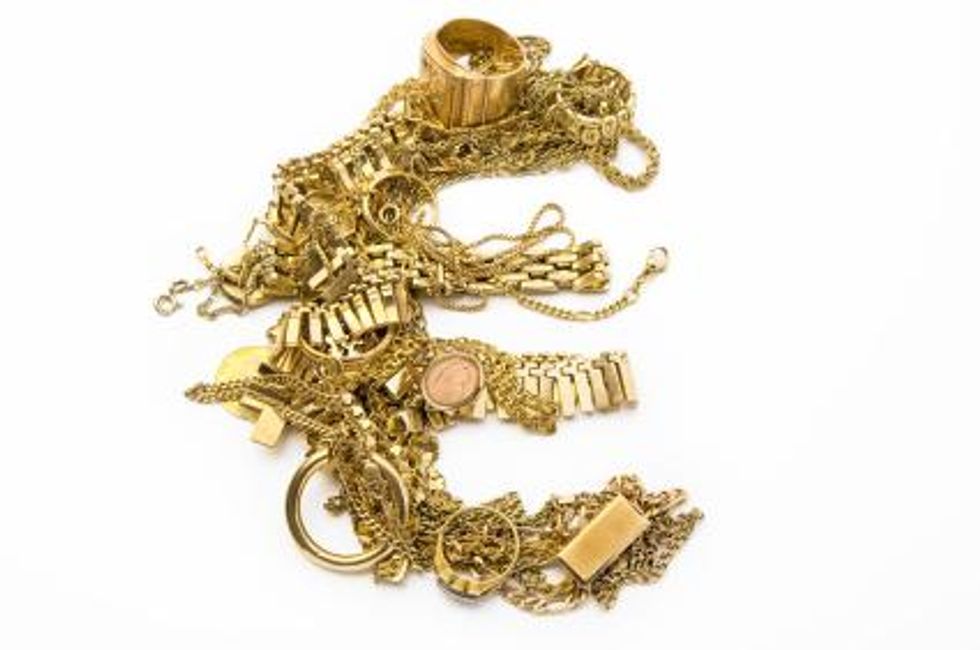Changes to the European Financial Stability Facility could mean a loss in value of the Euro currency in relation to gold and other precious metals.
French President Nicolas Sarkozy hailed the new aid package for Greece and changes to the European Financial Stability Facility (EFSF) as being the “beginnings of a European monetary fund,” which will perhaps buy Athens some time to improve their ailing economic situation, but this could also mean a continued loss in value of the Euro currency in relation to the price of gold and other precious metals.
“We should see gold continue to increase against the Euro currency. The organization they have created is essentially its own central bank and it’s going to be able to issue debt and basically monetize it as a form of quantitative easing,” said Phillip Streible, a Senior Market Strategist at Lind-Waldock, the retail arm of MF Global. “You should see the Euro currency weaken in the long-run because of it.”
On July 21, at an emergency summit on the European debt crisis, leaders passed resolutions which will have a lasting impact on how eurozone countries deal with indebted countries. One of the decisions was to make changes to the European Financial Stability Facility (EFSF) – the eurozone’s temporary rescue fund – by offering financial help to struggling member states. The EFSF, and the permanent European Stability Mechanism (ESM), which will replace it from 2013, will also offer the option of buying up debt issued by crisis-hit countries from private creditors. Previously, only the European Central Bank was able to do this.
The announcement of Greece’s bailout and changes to larger European economic programs dropped the Euro price of gold to around €1,105, from a high of just over €1,140 several days earlier. But, by the beginning of the next business week, the Euro price of gold had once again climbed to nearly €1,125 as investors continued to purchase gold as a hedge against currency inflation.
“As a result of what they are doing, they should experience more inflation. The only thing they can do to fight it is to continuously raise rates, but I don’t think they can continue that,” said Streible. “I think there may be one more rate increase over in the Euro currency this year, but beyond that, I think they’re going to have to hold back.”
The EFSF was originally created in June 2010 as a “rescue net” that could loan money to European nations and as an organization boasts the highest possible credit rating – AAA. To keep that rating the fund could only lend €225 billion, but under the new changes, the fund may lend up to €440 billion. Among other amendments, EFSF will also be able to directly recapitalize banks, and intervene in the secondary bond market.
Streible says that while the new features to the EFSF safety net may improve certain aspects of the European economy, the value of the Euro currency in relation to gold and other precious metals is not likely to be one of them.
“Certain assets like European stocks should do quite well, and as far as European bonds go you might see interest rates stabilize a bit, but the Euro currency itself should go into a steady decline just as the US dollar declined over a number of years,” said Streible. “It’s not a confidence issue in the markets themselves because European stock markets are strengthening right now, but if you look at gold priced in Euros, Euro currency is basically being devalued by them instituting quantitative easing measures.”
Moody’s Investors Service, a leading provider of credit ratings, research, and risk analysis, announced on Monday, July 25 that they downgraded Greece’s local- and foreign-currency bond ratings three notches to “Ca” from “Caa1,” further shaking investors’ confidence in the Euro currency.
“They’re creating money out of thin air to support Greece. They’re going to create money out of thin air to support Spain and Italy and Portugal as soon as their problems start to evolve again,” said Streible “They will be able to provide bailouts for Portugal, Italy and Spain, just like they did for Greece. They will be able to do that through that new facility so we should see gold prices against the Euro currency continue to rise.”
Though eurozone worries have not impacted the US gold price quite as drastically as in Europe, the price did reach a record peak of around $1,620 Monday, compounded by the impasse in U.S. debt negotiations. Meanwhile, gold for August delivery was the most actively traded contract, gaining $16.80 to $1,618.30 an ounce.
Gold has garnered much attention for its use as a hedge against inflation, and many central banks continue to hold on to large supplies of the metal for its store value, but Streible says that other precious metals – particularly silver – may make greater gains for investors looking for a cheaper alternative while maintaining much of the same function as a safe haven amidst uncertainty in the value of certain currencies.
“The Euro currency is most likely to decline, so you’ll probably see silver in Euro terms continue to increase,” said Streible. “The number of uses is far superior to gold and I think silver is going to play a better role as time goes on.”






